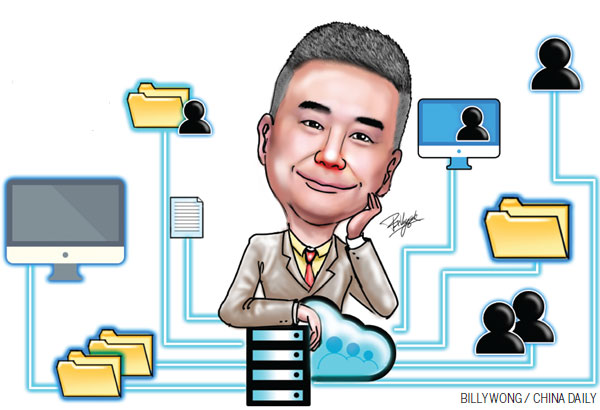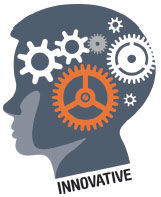Heralding the fourth industrial revolution
Updated: 2017-01-12 07:24
By Zhou Mo in Shenzhen(HK Edition)
|
|||||||||

Editor's note: A Shenzhen startup has gone the extra mile by maximizing the advent of the red hot blockchain technology and applying it to the field of healthcare, hoping that the effort will help reshape industries' traditional way of doing business.
While quite a number of entrepreneurs choose to follow the big trend by exploring popular sectors like the "Internet of Things", smart hardware or internet healthcare, Ji Chengchen believes that focusing on technological development to support and fuel businesses' growth would also be a great thing.
After years working in banks and running a consultancy, he has set his sights on the new and hot blockchain technology, and is dedicated to putting it to practical use in more business scenarios so as to create a healthier and more orderly environment for various kinds of businesses.
Blockchain is defined as a decentralized digital ledger that records transactions on thousands of computers globally in such a way that the registered transactions cannot be altered retrospectively. It's considered a secured way of conducting online transactions.
The technology is now mainly used in banks, but Ji says its field of application can be far wider.
"Blockchain technology will not only make an impact on or even change the financial industry. It also plays a revolutionary role in such areas as the 'Internet of Things' or healthcare," says Ji, general manager of Shenzhen PeerCome Technology Ltd.
"Taking advantage of Shenzhen's sound technological innovation system and government support, the technology will have great potential in a variety of fields. We hope to make it possible by integrating them with various industries."
For example, at present, violations often occur during the process of prescription drug dealing on the Chinese mainland, he says.
"Some online pharmacies sell prescription drugs to buyers without requiring them to show prescriptions. Some even sell fake medicine, causing harm to people's health," Ji tells China Daily.

"We hope to avoid such a situation. Therefore, we've developed a prescription drug distribution system based on blockchain technology. In the digital system, which links hospital and pharmacies, each prescription can be seen by all sides and cannot be modified, ensuring transparent and safe transactions in drug prescription."
Although the technology is far from being widely known and adopted, Ji has seen considerable progress in public awareness and recognition in the past year. Several banks have started applying the technology in their work system to boost efficiency, and many other sectors are also interested in becoming the "early bird" to reap the benefits.
"Earlier on, when I visited companies and organizations to talk about blockchain technology, people even asked me 'what is blockchain, what are the three characters in Chinese'," he jokes.
"But now, more and more businesses in Shenzhen have become aware of the new concept and have realized its value in reshaping traditional industries."
The mainland's first internet bank WeBank, backed by internet giant Tencent, said in September it had co-developed a blockchain application system used for clearing and settlement of Weilidai loans with Shanghai Hua Rui Bank.
WeBank's product Weilidai offers small credit loans to users without the need for guarantee or collateral.
WeBank's Vice-President and Chief Information Officer Ma Zhitao says the system had gone through a trial operation since September, and the e-bank would seek further cooperation with other banks in future.
Developing the blockchain system is quite necessary and plays an important role in trimming costs and enhancing efficiency in dealing with Weilidai loan transactions, he says.
In traditional business, each bank has to allocate a large number of human and other resources to check its account after a transaction is made because there's no common and safe platform on which transaction information can be stored and shared.
With the introduction of a blockchain system, all the information can be recorded in it and cannot be falsified, thereby creating a trustworthy environment for all parties.
The disruptive technology, which is seen by many as a sign of the fourth industrial revolution, is gaining increasing popularity globally.
According to a recent IBM study, 15 percent of 200 global banks surveyed are geared up to run blockchain solutions as early as this year, and see commercial blockchain solutions "at scale".
"Our survey of commercial and retail banks reveals that the industry is hurtling toward blockchain adoption faster than many had expected," says the study.
Ji is also optimistic about its prospects, but reckons it may take two or three years before it can get wide application.
"It takes time for a technology or an industry to mature, and there'll be thorns in the process. We need to stay calm."
sally@chinadailyhk.com
(HK Edition 01/12/2017 page8)